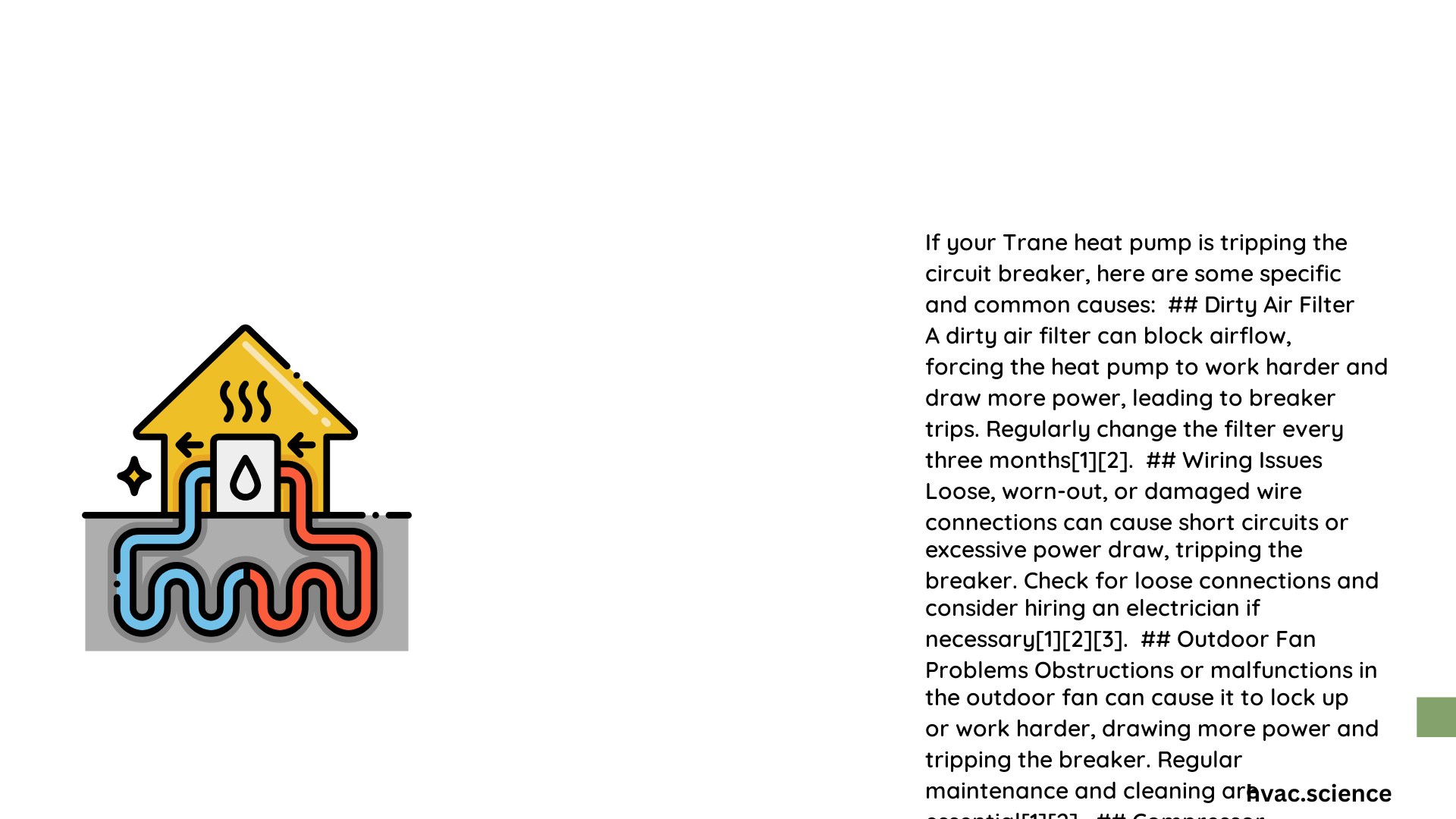A Trane heat pump tripping the circuit breaker can signal serious electrical problems that demand immediate attention. Homeowners experiencing frequent breaker trips may face potential system damage, reduced efficiency, and safety risks. Understanding the root causes and implementing strategic diagnostic approaches can help prevent costly repairs and restore your heat pump’s optimal performance.
What Causes Trane Heat Pump to Trip Circuit Breaker?
Why Do Electrical Overloads Occur?
Electrical overloads in Trane heat pumps can stem from multiple interconnected factors. These issues range from mechanical failures to electrical system complications that progressively strain the system’s operational capacity.
Key Diagnostic Factors
| Problem Area | Potential Impact | Diagnostic Complexity |
|---|---|---|
| Compressor Performance | High Power Draw | Medium-High |
| Wiring Integrity | Short Circuit Risk | High |
| Refrigerant Levels | System Efficiency | Medium |
| Mechanical Obstructions | Increased Resistance | Low |
How to Identify Specific Electrical Strain Sources?
Airflow Restriction Indicators
- Clogged air filters blocking system ventilation
- Reduced heat exchange efficiency
- Increased electrical consumption
Mechanical Stress Signals
- Unusual grinding or clicking sounds
- Inconsistent cooling/heating performance
- Intermittent system shutdowns
What Diagnostic Steps Should You Take?
Professional Inspection Checklist
- Measure electrical current draw
- Inspect wiring connections
- Evaluate compressor functionality
- Check refrigerant pressure levels
- Assess outdoor unit fan operation
Can You Prevent Breaker Tripping?
Preventative maintenance represents the most effective strategy for mitigating Trane heat pump electrical issues. Regular professional inspections and proactive component management can significantly reduce unexpected system failures.
Recommended Maintenance Practices
- Replace air filters quarterly
- Clean outdoor unit annually
- Schedule professional system diagnostics
- Monitor electrical consumption patterns
- Address minor issues before escalation
When Should You Call a Professional?
Certain scenarios definitively require expert intervention:
– Persistent breaker tripping
– Visible wire damage
– Unusual system noises
– Inconsistent temperature regulation
– Complex electrical diagnostics needed
Technical Insights for Advanced Users
Electrical Load Analysis
Sophisticated heat pump systems require precise electrical load management. Factors like:
– Startup current requirements
– Compressor efficiency
– Refrigerant charge levels
Influence overall system performance and electrical stability.
Safety Considerations
Warning: Never repeatedly reset tripped breakers without professional assessment. Continuous tripping indicates underlying systemic problems that could pose significant electrical hazards.
Cost-Effective Solutions
While professional repairs might seem expensive, they prevent:
– Catastrophic system failure
– Increased energy consumption
– Potential property damage
– Extended equipment downtime
Conclusion
Understanding your Trane heat pump’s electrical dynamics empowers proactive maintenance and timely interventions. By recognizing early warning signs and implementing strategic diagnostic approaches, homeowners can ensure reliable, efficient system performance.

